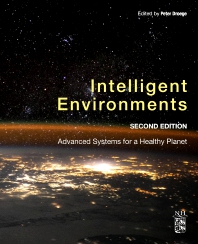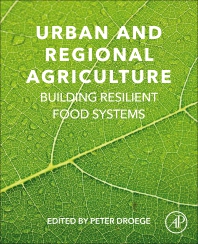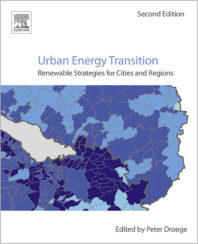Prof. Peter Droege
Overview: policy, design, planning and training background
Peter Droege is a leading international urban sustainability expert on advanced urban policy, management, transport policy and strategy, urban design, city and regional planning and renewable infrastructure development. His academic career stretches from the School of Architecture and Planning at the Massachusetts Institute of Technology and his position at the University of Tokyo as Urban Development Engineering Endowed Chair to his position as Lend Lease Chair and Professor of Urban Design at the University of Sydney, and Conjoint Professorship at the University of Newcastle’s School of Architecture and Built Environment. At the University of Liechtenstein he developed a highly influential Chair for Sustainable Spatial Development which he held over a period of eight years.
Award winning author and editor of seminal books on city futures, resilience, regenerative design, energy and climate
A recipient of the European Solar Prize, Peter Droege not only produced the major textbook on space and IT, Intelligent Environments (Elsevier 1998), but also has become an influential author and editor of seminal books on transforming the urban system: “The Renewable City” (Wiley 2006), “Urban Energy Transition” (Elsevier 2008), “100 Percent Renewable” (Routledge 2012, Earthscan 2009), “Climate Design” (ORO Editions 2010), “Regenerative Region” (Oekom 2014) as well as chapters in the new “Handbook of Architectural Theory” (Sage 2011), “Encyclopedia of Energy” (Elsevier 2004), “The New Blackwell Guide to the City” (Blackwell 2011), “Sustainable Urbanism and Beyond” (Rizzoli 2012), and “Superlux” (Thames and Hudson 2015). These findings and ideas combined with his projects led Peter Droege to serve as sustainability innovation advisor to the City of Zurich’s Urban Design Department, Principal Advisor to Beijing’s Municipal Institute for City Planning and Design, be elected as President of Eurosolar, appointed as General Chairman of the World Council for Renewable Energy, and be invited as inaugural Selection Committee member of Masdar’s Zayed Future Energy Prize. In June 2016 Peter Droege was commissioned by the world’ largest science publisher, Elsevier, to develop a second edition of his 2008 bestseller, Urban Energy Transition: From Fossil Fuel to Renewable Power. It was released in August 2018 as the 700-page global handbook ‘Urban Energy Transition – Renewable Strategies for Cities and Regions’. The Third Edition is currently under development for publication in 2024, and two other Elsevier volumes are being released for 2023 now: Intelligent Environments 2 – Advanced Systems for a Healthy Planet, and Urban and Regional Agriculture – Building Resilient Food Systems.
International ecological and renewable energy based urban management, planning and design expertise
Peter Droege initiated in 2007 the ‘Renewable Wilhelmsburg’ theme of the International Building Exhibition IBA-Hamburg, and advised the organisation on energy and climate design and planning issues. Peter Droege has long pursued the innovative IBA Bodensee / International Building Exhibition Lake Constance development initiative, the first IBA based on universal sustainable lifestyle and metro-regional best practice across all scales and types of intervention. Peter Droege is also a highly valued urban sustainabiliy policy and governance advisor for organisiations as varied as UNDP, UNCHS, UNECE, Australian, German, Vietnamese and Indonesian governments, and has also long been active in Japan and China, winning a number of important competitions.
Peter Droege has been successfully engaged by US state government agencies, while working and teaching in America, where he also emerged as sustainable waterfront development expert. In Australia, Professor Droege has been instrumental in the master plan guidance for Melbourne Docklands, and oversaw the large-scale development of the Ultimo-Pyrmont peninsula. He was also the urban design/synergy advisor for the Australian Technology Park (ATP), one of the first clean-tech themed industrial re-development sites in the world, to enhance the opportunities for scientific exchange and innovation. In Europe Peter Droege served as in-house principal urban sustainability and design expert at the Urban Planning Department of Amsterdam, and shaped the energy and climate agenda of the multi-billion-Euro city development process of the Internationale Bausaustellung IBA-Hamburg 2007-2013.
Recent and current applied research on climate and urban development
As Professor and Chairholder at the University of Liechtenstein Peter Droege initiated, directed and/or participated in the IBH / internationally and locally funded projects ‘Lake Constance 2030 Foresight Study’, Peter Droege initiated and led a EU-funded five-university, four-country urban and regional energy autonomy study ‘Energy Region Lake Constance-Rhine Valley’ running from 2010 through 2014, focused on a transition to renewable energy and mobility based on local resources. The final report has been released by the German Oekom publishers, entitled ‘Regenerative Region: Energy and Climate Atlas’. He initiated and successfully completed in 2012 the government co-funded model development and scenario study ‘Renewable Liechtenstein’. In 2013 he secured a 30-month follow-up study on regional implementation strategies, and expanding the scope to global ecological footprint measurement and reductions.
He is engaged in the ‘Common European Sustainable Built Environment Assessment – Alpine Countries’ (CESBA-Alps) and innovated for it ATLAS, the GIS-based Alpine Territorial Levelised Assessment System. Peter Droege served as advisor and jury member at the international university based, applied R&D oriented 2014 Solar Decathlon in Versailles, and the 2018 Solar decathlon in Budapest, in urban design. He chairs the management committee of the International Renewable Energy Storage (IRES) Conference, and has been a juror and jury chair on a wide range of international urban and urban sustainability projects for many years.



